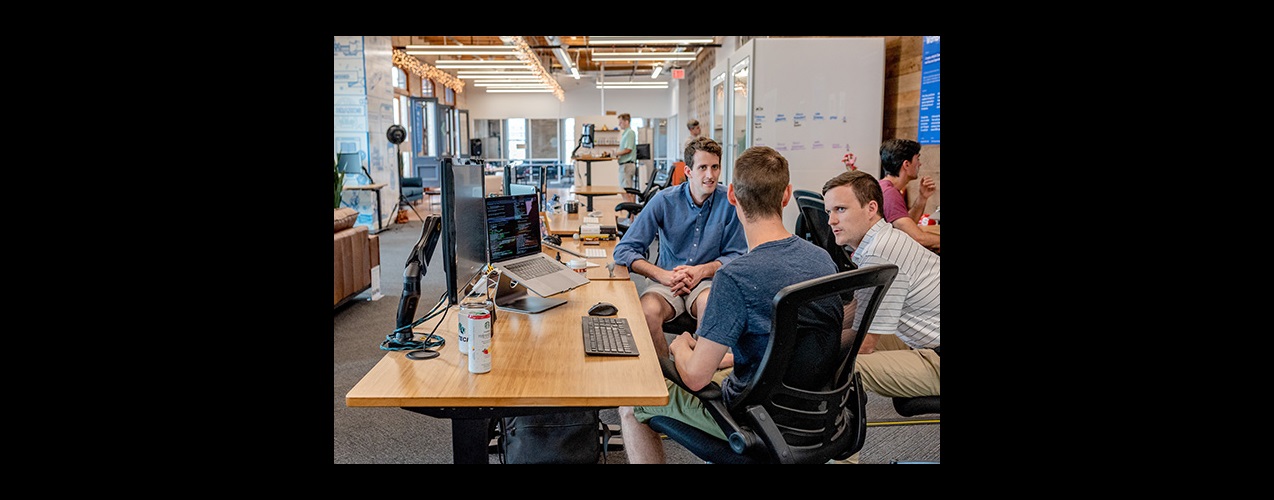
Right here right now
Professor Sally Eaves explains the importance of building an agile approach to insights and decision-making to inform smarter actions in a constantly changing world.

Professor Sally Eaves
Senior Policy Advisor, Global Foundation for Cyber Studies and Research

There’s a reason the term ‘trust your gut’ is popular. It celebrates our instinctive nature and the strength of intuition. But it also comes with a good dose of uncertainty which, in a market that requires quick, confident decision-making, means that ‘gut feel’ on its own simply isn’t enough.
In fact, decision-making within business today is being profoundly influenced by the advance of digital technologies – think cloud computing – driven by trends such as technology convergence, shifts in consumer and employee behavior, and evolving expectations around experience, personalization, trust, purpose, and security.
The real differentiator here is how quickly – and confidently – can an organization turn its raw data into data insights to take more informed actions. This process is increasingly augmented by the flourishing partnership between humans and machines. And this unique ability to leverage data is exactly what businesses need as they navigate and look to succeed in social, economic and market conditions that change quite literally while we sleep. The need to have the right data available to the right role whenever and wherever that may be, in near real-time – enabled by an agile analytics data pipeline, as I previously discussed in the first Active Intelligence magazine – has never mattered more.
James Fisher, Qlik's Chief Product Officer, sums it up perfectly: “Analytics should no longer be a destination; they should go to users wherever they are in their job.”
But what is empowering this data-fueled decision-making; what do businesses need to do to achieve it; and what can they benefit from once they’ve attained it?
“Analytics should no longer be a destination, they should go to users wherever they are in their job.”
- James Fisher, Chief Product Officer, Qlik
We owe much to cloud computing and its acceleration for the role that data plays in decision-making today. Multi-cloud platforms and the decoupling of storage and compute have catalyzed connectivity, productivity, and innovation through data. It’s thanks to the cloud’s inherent elasticity and scalability that we have harnessed the next generation of data warehouses and lakes.
Ultimately, the cloud is making more data available. It’s also made it more shareable, enhancing agility and scalability alongside communication, collaboration, and cohesiveness. Whether data is stored on premise, in the cloud, or in a hybrid model, it can now be accessed and used where, when, and how we need it to find key insights, make decisions and accelerate time to value. Helping people get to the right data quickly and to make informed decisions with confidence, however, remains an ongoing challenge for many organizations.
All that said, the cloud isn’t the whole solution. There are still issues within many businesses around distributed, siloed, variable and fragmented data, migration disruptions, and a general lack of visibility and integration. This is why a comprehensive data integration strategy is so important for companies today.
With cloud as its backbone, the data strategy needs to be underpinned by a flexible architecture that supports agility as well as strong governance. It also needs to include investment in process, culture, and skills. There’s no point in spending tons of money on the infrastructure if your people can’t find it, can’t use it, or don’t trust it.
As Dan Potter, VP of Product Marketing at Qlik says: “Functional teams like sales, marketing and HR understand their data and requirements better than anyone. Collaboration with IT helps facilitate the systems and data they need with the trust provided through automated governance and control.”
“Data engineering helps the rest of the business build and manage data systems that they need, and put in automated governance and control to support their goals.”
- Dan Potter, VP of Product Marketing, Qlik
Governance and control are vital. Having visibility to all workflows and processes, including external systems, helps break down silos to optimize flow and experience without reducing governance, residency, or encapsulation. Additionally, agile change management supports agile enterprise, particularly automation of systems like data warehouses and lakes, which generates the necessary code and documentation to manage the entire lifecycle, and provides resiliency when source systems change (otherwise known as schema drift).
And the role of automation in enabling data-driven decision-making should not be underestimated. Businesses now have the capacity and tools to automate as much as possible, empowered by metadata and machine learning. Real-time information from multiple sources can be made accessible using AI to drive insights conducted directly within business applications. Automation can trigger actions on behalf of the user while they remain ‘in the loop’ and active in the process.
For example, customer service managers can reduce customer churn by triggering automated offers for similar items to the ones shoppers are trying to purchase when they go out of stock. This is the flourishing relationship between human and machine in action that I mentioned in my article for the previous Active Intelligence Magazine.
Talking with Mike Potter, Chief Technology Officer at Qlik, on this subject, he says it’s important to “emphasize augmentation, because we always want to keep the human in the loop.” He adds: “When you think about data generating insights, and then add collaborative capabilities, you can have a human contextual discussion in decision-making.”
“We always want to keep the human in the loop for any data-generated insights.”
- Mike Potter, Chief Technology Officer,Qlik
But what is the impact of all of this on technology, infrastructure, and business strategies?
The ‘gut feel’ becomes informed action – not just for business leaders, but for anyone across the business who interacts with, or could benefit from, a better relationship with data. By serving up data and analytics in a way that becomes readily consumable, with more relevant insights and simpler interfaces, IT can empower the entire organization to make data driven actions. Working under a flexible and governed framework, business users can quickly get to the information they need, and generate meaningful insights in-the-moment.
In practice, this informed action looks like in-store decision-making beyond managers to associates across 650+ outlets for global retailer Urban Outfitters. With Qlik, the business was able to integrate previously fragmented reporting to create dashboards that offer visibility across all aspects of individual stores’ KPIs. That’s fresh data every two minutes.
It also looks like the ability to quickly visualize issues and improve store performance for over 100 area development managers (ADMs) at Samsung. Using Qlik, there is no more cumbersome Excel reporting. Through geofencing, Samsung’s mobile app shows ADMs the locations they visit, saving two hours per week and increasing visit efficiency by 20%. It’s no wonder 90% of its ADMs now use the app regularly.
As both examples show, decision-making isn’t something that is confined to the boardroom or weekly meetings. It’s something that needs to take place on-the-ground, in-the-moment, by multiple job roles. To create that agility, organizations need to leverage the scale and power of the cloud alongside data and analytics, underpinned by automation and AI, data mesh architectures, continuous integration and continuous deployment (CI/CD) change management, process, culture, and (up)skilling.
It's about closing the gap between what is happening in the business right now and the information and the insights available. Get that right – become an Active Intelligence organization – and businesses will boost innovation, accelerate value, and sharpen their competitive edge.
Professor Sally Eaves
Professor Sally Eaves is Senior Policy Advisor and Chair of the Cyber Trust at the Global Foundation for Cyber Studies and Research. She is also CEO of Aspirational Futures, which enhances inclusion, sustainability and diversity in education and technology. Her new book, Tech for Good, will be published this year.













